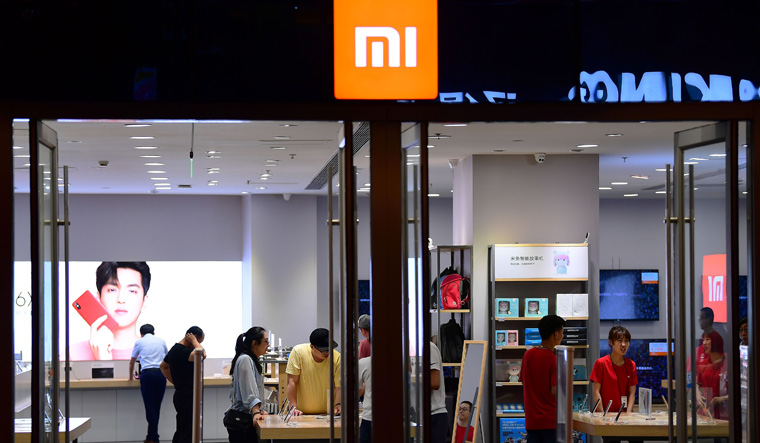Xiaomi, the largest smartphone brand in India, is rolling out Mi Commerce, an online-to-offline retail platform that will let its retail partners reach out to consumers in their neighbourhood through online channels. The move comes in the backdrop of the COVID-19 pandemic, that has led to a nationwide lockdown and strict social distancing measures being mandated.
India has extended the nationwide lockdown till May 15. However, from Monday, restrictions are being eased in varying degrees depending upon the zone: Green, orange or red. Social distancing measures will still have to be followed.
The Mi Commerce platform will be in in addition to Xiaomi’s own online store mi.com as well as e-commerce partners like Amazon.
“The last 40 days have been challenging. We got a time to re-look at what we will do differently in the post COVID-19 situation. Out of that emerged the entire concept of Mi Commerce. We are [offering a solution] for business continuity in offline trade, especially in the context that people will be apprehensive to visit offline stores because of concerns on safety, hygiene, virus spreading etc.,” said Muralikrishnan B., chief operating officer at Xiaomi.
The web platform aims to make it easier for customers to buy Xiaomi products, while offering an e-commerce like solution for its physical retail partners to connect with the customers and sell the inventory available in their stores. Essentially, customers will browse the inventory of the local store online, select the product, which the store will then deliver to the customer’s doorstep.
The nationwide lockdown has hit sales of several industries including consumer durables hard.
According to Counterpoint Research, India’s smartphone shipments rose just 4 per cent year-on-year to a little over 31 million in January-March. While sales had grown year-on-year in January and February due to new launches and aggressive promotions, sales in March slumped 19 per cent due to COVID-19 outbreak, it said.
Xiaomi remained the market leader with a 30 per cent share in the first quarter. Chinese rival Vivo raced ahead of Samsung to claim the second spot with 17 per cent market share. Samsung’s share during the period declined to 16 per cent from 24 per cent in the same period a year ago.
While sales in the April-June quarter will be impacted, Xiaomi expects a strong rebound from the July-September quarter.
“In an industry like smartphones, when the lockdown is announced of course sales go down. But when lockdown is removed sales bounce back very fast, almost like a V shaped curve,” Manu Kumar Jain, managing director at Xiaomi India, said citing trends in other countries where lockdown was now being lifted completely or at least partially.
At the beginning of 2020, analysts had expected the total smartphone industry sales in India would touch 160-170 million units this year. In the backdrop of the COVID-19 disruptions, the expectations have since been scaled down to around 135-145 million units.
“Q2 (April-June) there is going to be a decline because last 45 days have gone by without any sales and even now the ramp up will be slow. So, Q2 will be a difficult time for all of us, but, Q3 and Q4, people are still expecting sales at similar levels what they had forecast earlier,” Jain added.
Jain’s optimism stems from the fact that neighbourhood retail stores will slowly start opening now as the restrictions are eased, its Mi.com platform as well as e-commerce partners have started taking orders in green and orange zones and manufacturing plants are also set to reopen soon, with regular capacity expected from June.
“The Foxconn Andhra Pradesh factory has already got its approval. We expect the production to start over the course of next few days and the supply should keep ramping up. The factories have already done a dry run of all of their hygiene and safety standard operating procedures,” said Muralikrishnan.
The company’s Redmi Note 9 Pro smartphone will go on sale on Tuesday. Jain confirmed that the flagship phone, Mi 10, will also launch in India on May 8.
Xiaomi has been in the news recently, after a report in Forbes stated that the default web browsers in the company’s smartphones were recording web history and transmitting data to remote servers.
Jain admitted that data was being collected but there was no malicious intent and since the data was aggregated, it couldn’t be identified to any particular person.
“The data that was being collected by Mint browser or Mi browser was aggregated data, which means it can’t be linked to any single individual anywhere. It is not personally identifiable. Many browser companies were also following something similar, which is only used to improve the overall experience while ensuring and safeguarding user privacy and data security,” he said.
Xiaomi has since updated the two browsers and now users have the option where in incognito mode, users can turn off the aggregated data collection. Jain added that the company was open to any trusted third party agency conducting an audit.



